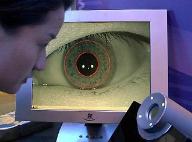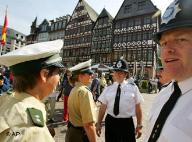Lufthansa Chief Calls for Modernized Airport Security Measures
The United States have refined airline security measures, adjusting the liquid ban implemented in August, but the head of German airline Lufthansa said searching bags is not the ideal way to catch terrorists anyway.
As of Tuesday, passengers boarding flights in the United States are allowed to carry small amounts of the liquids, gels and aerosols that were previously banned.
Travelers will be allowed to carry travel-size toiletries through security checkpoints, according to the US Transportation Security Administration (TSA). They may also bring items, including beverages, purchased in a secure boarding area onto the aircraft, TSA announced Monday.
TSA first implemented the ban on all liquids, gels and aerosols in August, after UK officials uncovered a terrorist plot to blow up transatlantic flights bound for the United States with liquid explosives.
But according to Wolfgang Mayrhuber, chief executive of German carrier Lufthansa, more needs to be done. Mayrhuber said that safety measures at airport controls should be modernized.
"We need more intelligent approaches," Mayrhuber told the German daily Kölner Stadt-Anzeiger. "We can't catch terrorists by rummaging through handbags. That is a completely illusory notion."
Biometric data for better security
Mayrhuber said he recommended the introduction of biometric features, such as fingerprints, facial measurements and iris controls. These patterns are reduced to mathematical algorithms and can be stored on a chip in a passenger's passport.
 He said this data could be added to the information airlines already receive from customers.
He said this data could be added to the information airlines already receive from customers."With this, we could effectively shorten the check-in time at the airports," he said. "We could achieve higher security and higher comfort."
Lufthansa has begun tests with a biometric system, in which passengers are issued tickets encoded with their thumbprint data. They can then check themselves in by placing their thumbs on a machine.
Mayrhuber said any systems used to identify passengers would have to be internationally recognized and comparable, though not identical.
"Those are acceptable tools," he said. "Then a passenger flying to the United States doesn't have to fill out any forms anymore." Currently, travelers heading to a US destination are required to fill out several forms for US entry.
Higher technology doesn't infringe on individual privacy
Mayrhuber said he didn't think such measures would violate the privacy of individuals.
 "This data is already collected today," he said. "In Bangkok, my face is automatically photographed when I enter and leave the country."
"This data is already collected today," he said. "In Bangkok, my face is automatically photographed when I enter and leave the country."Manually recording such data has a larger danger for error than if an integrated system is created and determines when the data is to be destroyed, he said.
The current system of hand-checking passengers' bags was not suitable, Mayrhuber said.
"Basically it's a sedative for people, who don't think about it," he said.
DW staff (sac)
Deutsche Welle 09/2006


